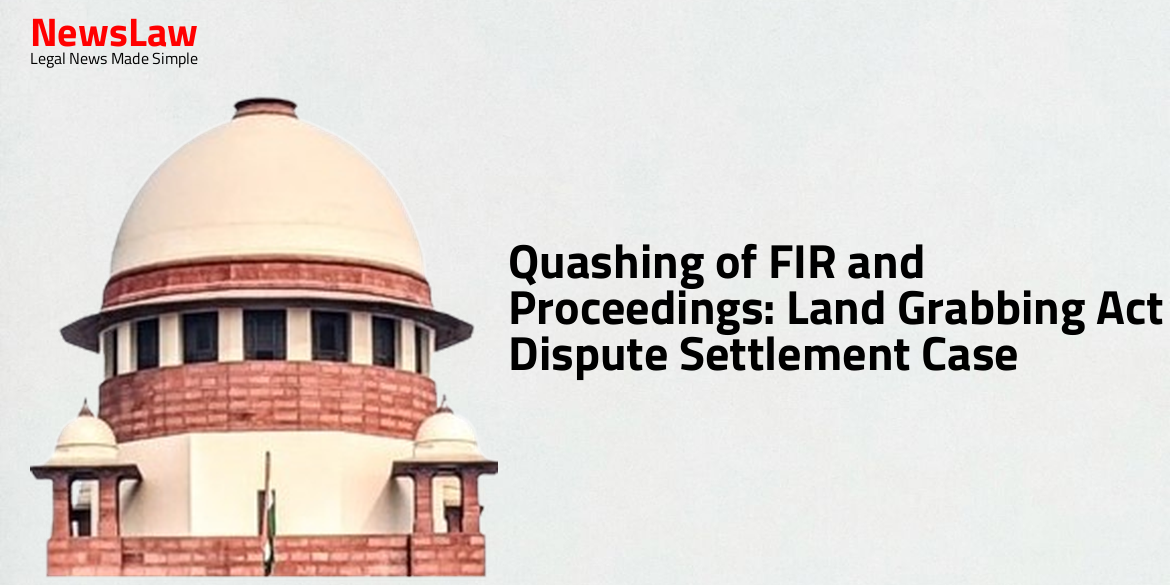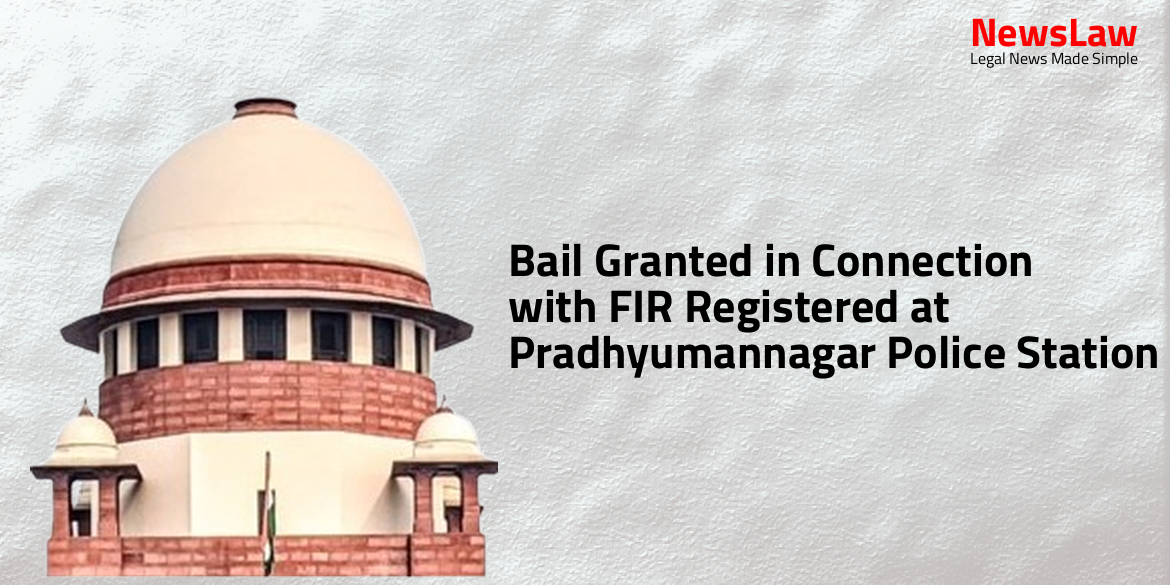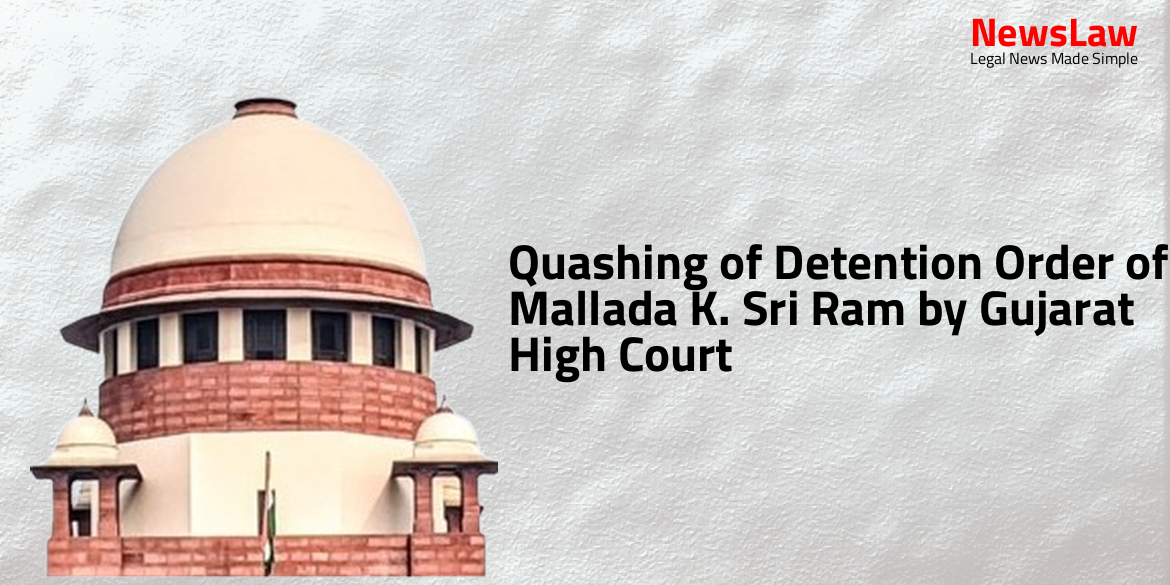In a significant legal development, the Gujarat High Court has rendered its judgment in the Land Grabbing Act dispute settlement case, where parties reached an amicable resolution. The case involved a property dispute and allegations of non-payment of rent. Following a mutual settlement between the parties, the original complainant filed an affidavit confirming the resolution. Stay tuned to learn more about this landmark case.
Facts
- Application filed under Section 482 of Cr.P.C. to quash the FIR CR No. 11196012230578 of 2023.
- Prayer to set aside the complaint for offences under Land Grabbing Act and IPC.
- Parties have settled the dispute amicably during proceedings.
- Original complainant filed an Affidavit post settlement.
- All consequential proceedings to be quashed as per settlement.
Arguments
- The original complainant has stated in the Affidavit that the dispute with the applicant/s has been resolved amicably.
- The original complainant has confirmed that he has no objection to quashing and setting aside the present proceedings.
- There is no surviving grievance between the parties as per the original complainant’s statement.
- Based on the resolution of the dispute and lack of objection from the original complainant, the present proceedings can be quashed and set aside.
Analysis
- Petitioners No 1 and No 2 promised to vacate for a sum in 2019, but when refused, petitioners No 3 and No 4 started a garage on the property in 2022.
- The matter has been amicably settled between the parties.
- The complainant filed an affidavit confirming the amicable settlement.
- Petitioners No 1 and No 2 retained possession without paying rent since 1970 and sublet it to petitioner No 3 in 2009.
- A quarrel ensued when asked to vacate, with petitioner No 3 threatening dire consequences.
- The complaint alleges non-payment of rent and improper possession.
- The High Court’s power under Section 482 of the Code of Criminal Procedure is being considered for quashing the complaint.
- The complainant has no objection to the complaint being quashed.
- Caution must be exercised in utilizing the wide powers under Section 482 of the Code.
- The situation led to the filing of an FIR by the complainant.
- The High Court, following the principles laid down by the Apex Court in various cases, is of the opinion that the continuation of criminal proceedings against the applicant would cause unnecessary harassment.
- Trial continuation after a mutual settlement between parties would be futile.
- The High Court, being the highest in the state, usually avoids giving a prima facie decision in cases with incomplete or hazy facts and without sufficient evidence.
- Exercise of extraordinary jurisdiction to quash proceedings at any stage is not subject to a hard-and-fast rule.
- Instances where quashing proceedings may be appropriate include situations of an express legal bar in the Code of Criminal Procedure or relevant Act, and when the proceedings are mala fide or maliciously instituted with ulterior motives.
- Considering the circumstances and to secure the ends of justice, it is fitting to quash the impugned FIR and all related proceedings under Section 482 of the Cr.P.C.
- Referring to the case of State of Haryana vs. Bhajan Lal, the Supreme Court’s observation that absurd and inherently improbable allegations in the FIR or complaint warrant consideration for quashing.
- The inherent power should not be exercised to stifle a legitimate prosecution.
- The Court must be careful to ensure that its decision in exercise of this power is based on sound principles.
Decision
- The application is allowed.
- If the applicant/s is/are in jail, they should be released immediately if not required in connection with any other case.
- The complaint C.R. No.11196012230578 of 2023 registered with Fathegunj Police Station, Vadodara, and all consequential proceedings are quashed and set aside for the applicant/s.
- Direct service is permitted.
- Rule is made absolute.
Case Title: SAMPATIBEN GIRIRAJSINH NARAYANSINH GURJAR Vs. STATE OF GUJARAT
Case Number: R/SCR.A/5532/2024



